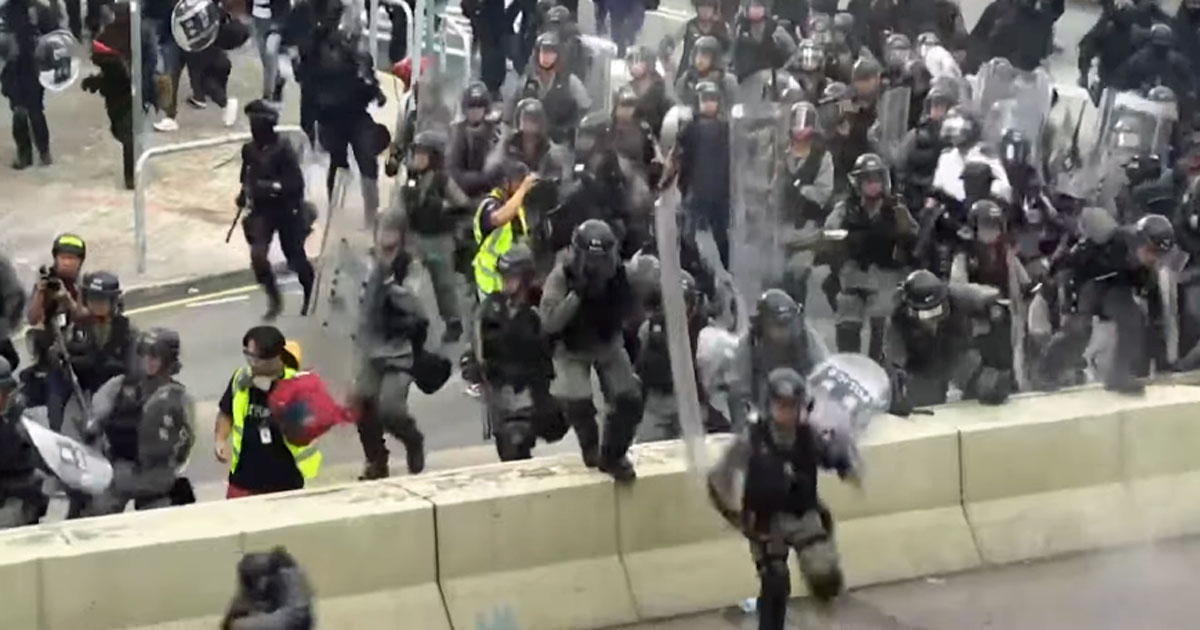The Chinese central government rejected a proposal by Carrie Lam, the chief executive of Hong Kong, to withdraw the extradition bill and ordered her not to yield to any of the protesters' other demands, Reuters reported on Aug. 30 in the latest revelation that Beijing is exerting a greater influence on the Hong Kong government than most people assumed.
The report to Beijing had assessed the feasibility of protesters' five key demands and found that withdrawing a contentious extradition bill could help defuse the mounting political crisis in the territory.
The proposal was submitted some time between June 16 and Aug. 7.
However, Reuters did not see the report and was unable to establish the precise timing of the rejection.
Where did this information come from?
Three unnamed individuals with direct knowledge of the matter told Reuters about this development.
Why is this contentious?
Beijing's rebuff of Lam's proposal for how to resolve the crisis is being detailed for the first time by Reuters.
Reuters said it represents concrete evidence of the extent of China's control over the Hong Kong government's response to the unrest.
This revelation would make the Hong Kong government's reactions appear less organic.
So far, state media has issued stern statements on protesters' "radical" goals.
The Chinese central government has also condemned the protests and accused foreign powers of fuelling unrest.
The Foreign Ministry has repeatedly warned other nations against interfering in Hong Kong, reiterating that the situation there is an "internal affair."
Hong Kong government wanted to yield to protesters
Lam's report on the protests analysed how conceding to some of the protesters' demands might quiet things down, the individuals with direct knowledge said.
In addition to the withdrawal of the extradition bill, the other demands analysed in the report were: An independent inquiry into the protests; fully democratic elections; dropping of the term "riot" in describing protests; and dropping charges against those arrested so far.
The withdrawal of the bill and an independent inquiry were seen to be the most feasible politically, an anonymous senior government official in the Hong Kong administration told Reuters.
The move was envisioned as helping pacify some of the more moderate protesters who have been angered by Lam's silence.
Beijing against yielding
According to a senior government official, Beijing told Lam not to withdraw the bill, or to launch an inquiry into the tumult that includes allegations of excessive police force.
The Hong Kong government was the one that submitted the report.
President Xi Jinping was apparently aware of the report as the Hong Kong government had submitted it to the Central Co-ordination Group for Hong Kong and Macau Affairs, a high-level group led by Politburo Standing Committee member Han Zheng.
Beijing apparently wanted Lam's administration to take more initiative.
Lam's office did not comment directly on whether it had made such a proposal to Beijing, or received instructions.
The Hong Kong and Macau Affairs Office (HKMAO), a high-level bureau under China's State Council, did not respond to a faxed request for comment by Reuters.
The question of Beijing's influence strikes at the heart of Hong Kong's "one country, two systems" governance.
If you like what you read, follow us on Facebook, Instagram, Twitter and Telegram to get the latest updates.
